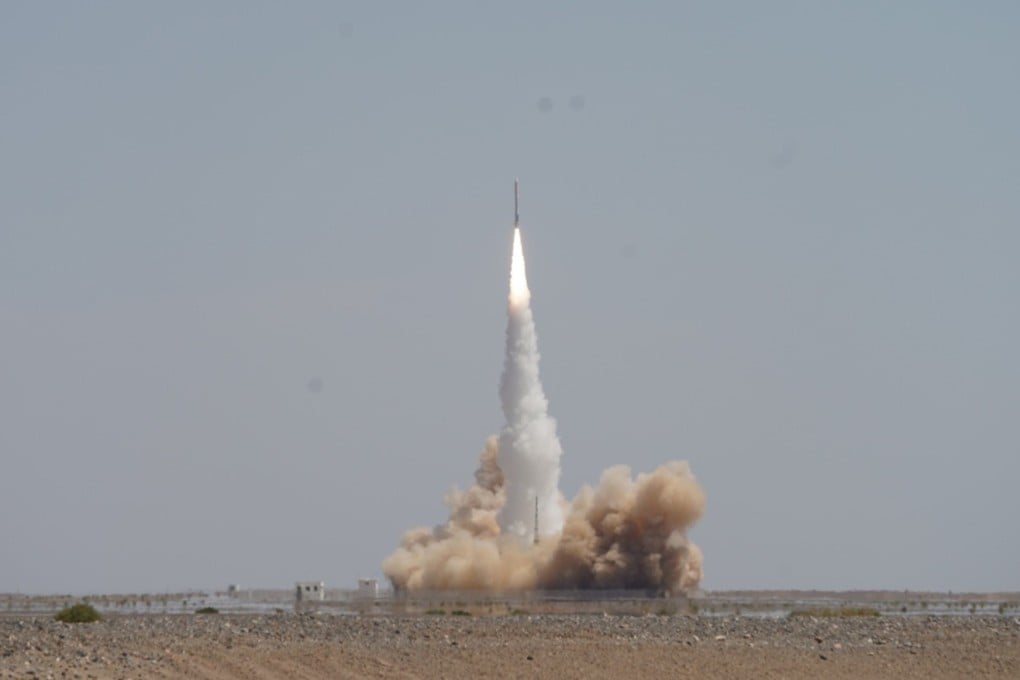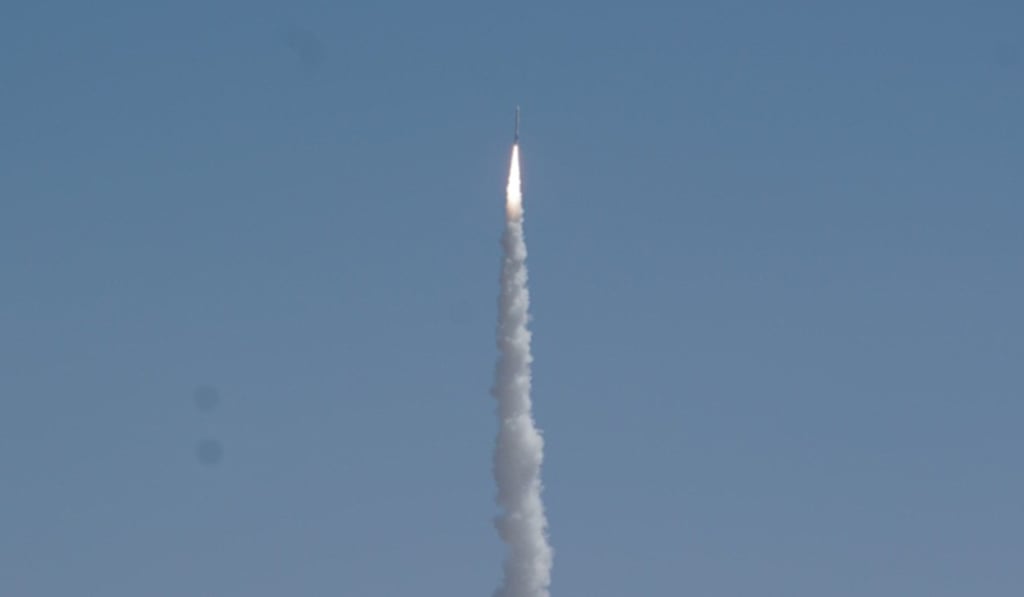Advertisement
iSpace becomes China’s first privately owned firm to put a rocket into orbit
- Hyperbola-1 ‘makes history’ after delivering two satellites into near-Earth orbits
- Successful mission comes just months after industry rivals One Space and Land Space see their hopes fizzle out
Reading Time:2 minutes
Why you can trust SCMP

Stephen Chenin Beijing
A Beijing-based company on Thursday became the first privately owned Chinese firm to successfully launch a rocket into space.
Designed and built by iSpace, and measuring about 20 metres (66 feet) in length, the Hyperbola-1 took off at 1pm from the Jiuquan Satellite Launch Centre in the Inner Mongolia autonomous region, and just minutes later deployed the two satellites it was carrying into near-Earth orbits.
The success of the mission was a milestone for the industry, according to Professor Rong Jili, deputy dean of the school of aerospace engineering at Beijing Institute of Technology.
Advertisement
“It makes history,” he said.

Advertisement
All previous attempts by privately owned Chinese companies to achieve such a launch have ended in failure.
Advertisement
Select Voice
Select Speed
1.00x